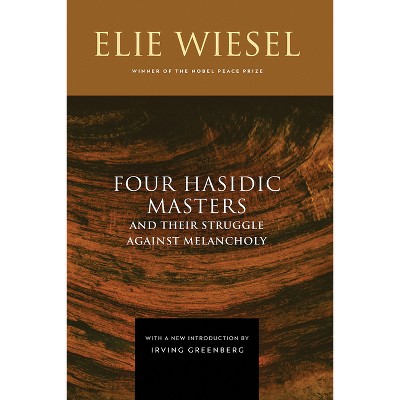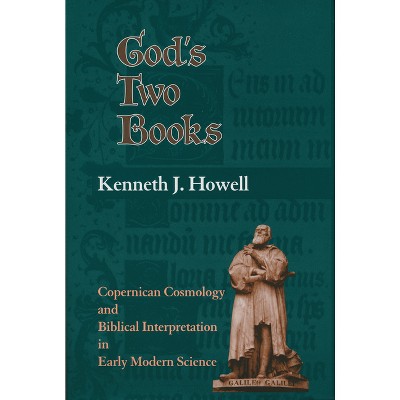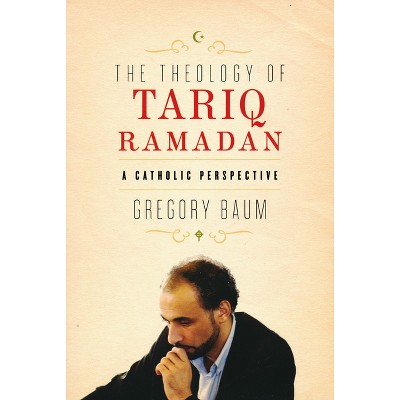Sponsored

Nahmanides in Med. Catalonia - by Nina Caputo (Paperback)
In Stock
Sponsored
About this item
Highlights
- In this detailed study, Nina Caputo examines conceptions of history and messianic redemption in the writings of the Catalonian rabbi and brilliant Talmudic scholar Nahmanides (1195-1270).
- About the Author: Nina Caputo is assistant professor of history at the University of Florida.
- 328 Pages
- Religion + Beliefs, Judaism
Description
About the Book
In this detailed study of 13th century Catalonia, Caputo examines conceptions of history and messianic redemption in the writings of the Catalonian rabbi and brilliant Talmudic scholar Nahmanides (1195-1270).
Book Synopsis
In this detailed study, Nina Caputo examines conceptions of history and messianic redemption in the writings of the Catalonian rabbi and brilliant Talmudic scholar Nahmanides (1195-1270). An early exponent of kabbalah, Nahmanides was also a shrewd intermediary between the Jewish communities and the royal administration of Aragon. Most intellectual histories focus on Nahmanides in the fairly insular context of Jewish community dynamics, but this volume explores the largely unexamined history of encounters between Jewish and Christian interpretations of history and redemption, as well as the significant role played by Jews in the expansion of the Crown of Aragon during the thirteenth century. Caputo explains Nahmanides' distinctive understanding of the shape and meaning of historical time and change and reveals how his discourse frequently confronted Christian views of history and scripture, sometimes embracing Christians forms, but at other times directly refuting them.
Nina Caputo's book is the first to situate Nahmanides in the full intellectual and religious context of thirteenth-century Catalonia. It makes an important contribution to the fields of Jewish studies as well as medieval and early modern history.
Review Quotes
"Nahmanides in Medieval Catalonia is a compelling illustration of meticulous scholarly attention, of subtle historical consciousness, rigorous rhetorical and literary sensibility, and true, wide-ranging synthetic ability--it uniquely draws from the entire corpus of Nahmanides' work in order to reframe conflicts and disputes, once again, as fertile and positive exchanges." --Gil Anidjar, Columbia University
"This book explores Nahmanides' uses of history and his interaction with Iberian Christian culture in a number of related contexts: his stance during the controversy over the works of Maimonides, his typological understanding of the Creation story and the patriarchal narratives in Genesis, his role in the Barcelona disputation, and his messianic expectations and calculations." --Speculum
"[T]he book offers fresh perspectives on several central components of Nahmanides' literary output. In addition, anyone looking for a primer on the major scholarly issues surrounding Nahmanides and his period will find a treasure trove in the erudite endnotes. They . . . contain a wealth of information on many aspects of Nahmanides' thought and medieval Jewish intellectual history." --Journal of Religion
"Caputo has written a brilliant monograph on one of the most fascinating minds of the High Middle Ages. By aligning the intellectual and communal activities of Nahmanides within the context of both Jewish and medieval Spanish vernacular texts she brings academic rigor and interdisciplinary scholarship to throw new light on both communities at a critical moment in their development. Each chapter reveals the subtle ways that Nahmanides constructed intellectual and social frameworks for Jews to preserve their unique identity while sharing cultural and aesthetic norms of the Christian society that surrounded them." --Michael A. Signer, Abrams Professor of Jewish Thought and Culture, University of Notre Dame
"This book offers a meticulous and thoughtful reading of the themes of history, prophecy, and progress in Nahmanides' exegetical, theological, and polemical works. It joins a growing body of scholarship that emphasizes the extent to which even tense and hostile Jewish-Christian confrontations were predicated upon shared cultural and intellectual approaches. It is sure to interest and engage scholars in the fields of Judaic studies, Iberian history, and biblical studies." --Sara Lipton, Stony Brook University
" . . . a refreshing study that attempts to demonstrate that Nahmanides' engagement with Christianity and Catalonian culture provided the main framework of his writings. As such, Caputo's research is valuable and offers a new and broad perspective for understanding the significance of this engagement to Nahmanides' biblical commentaries and to the literary character of his writings." --Journal of the Association for Jewish Studies
"Nina Caputo . . . covers much the same material as other scholars, with chapters on his position in the 'Maimonidean controversy, ' his work as biblical commentator, the Barcelona disputation, and his eschatology. The author's goal is not to defend his orthodoxy or to provide him either the victor or the loser of the Barcelona debate. Her goal is to paint a well-rounded portrait of a complex individual who played many roles in his lifetime. Caputo's writing style makes her work a pleasure to read. I highly recommend her book to all students of Nachmanides, whether professional or lay." --Association of Jewish Libraries Newsletter
"Nina Caputo's study undertakes to analyze medieval conceptions of history, communal leadership, and messianism in the writings of Rabbi Moses ben Nahman. . . . Caputo raises stimulating questions about a very complex figure and his writings. Her treatment of the documents is refreshing and invites further research on the subject." --The Journal of Religion
About the Author
Nina Caputo is assistant professor of history at the University of Florida. She has published a number of articles and reviews on medieval and Jewish history.
Shipping details
Return details
Trending Non-Fiction
















